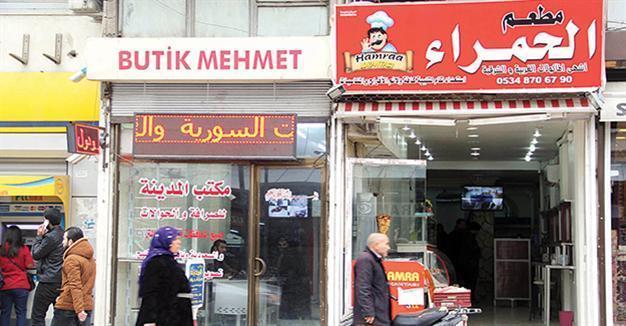Syrians in Turkey to be trained as intermediate staff
Gizem Karakış - ANKARA

DHA Photo
Syrians living in Turkey will be offered training before beginning to work in line with a new regulation which allows many of the 2.5 million Syrian refugees in the country to apply for work permits, Turkish government officials have said.Accordingly, Syrians will be trained for a period of time ranging from two months to four months, Murtaza Yetiş, a chief advisor for Prime Minister Ahmet Davutoğlu, said.
“In Turkey, there are big problems, especially in regards to intermediate staff. Although there is a monthly employment deficit of 180,000 jobs, there are professions for which nobody applies when these vacancies are announced. An arrangement will be made along with İŞKUR [the state’s employment agency] and Syrians who get their work permits will be settled particularly in provinces where there is difficulty in finding intermediate staff. Syrians who don’t attend training will not be able to start working,” Yetiş said earlier this week, while noting the financing for the training programs would be jointly supplied by Turkey and international organizations.
Syrian citizens who have medical or academic professions will be exempted from training and will be able to offer services to other Syrians.
“There is an educated part of the Syrians who fled to Turkey such as teachers, doctors and nurses. They will first of all offer services to Syrians. With the Syrian population’s influx into Turkey, a deficit has emerged in profession groups such as doctors and nurses in the health sector. These deficits will be designated by the Health Ministry and they will be eliminated,” Yetiş said, adding that Syrian teachers and academics would also be able to offer services to Syrians.
“Syrian teachers will implement the curriculum being taught in Syria. Turkish will be taught separately as a language course,” he said. “Syrian children need to be taught by Syrian teachers. We will provide this along with UNICEF,” he added.
According to a report released by the Human Rights Watch in November 2015, more than 400,000 Syrian refugee children living in Turkey were not attending school. Of the Syrian refugees living in Turkey, 708,000 were school-aged children. In 2014-2015, just over 212,000 were enrolled in formal education at the primary and secondary levels, based on Education Ministry data. While the enrollment rate inside refugee camps was nearly 90 percent, most refugees live outside camps, where only 25 percent of school-aged children were enrolled in school. Overall, more than two-thirds of Syrian children have been receiving no formal education in Turkey.
On Jan. 15, a cabinet decision to grant work permits to refugees who have fled to Turkey to escape conflicts in their homeland went into force.
It did not specify nationality, but the measure chiefly applies to the around 2.5 million Syrians who have fled the almost five-year conflict in their home country for the safety of Turkey, as well as some 300,000 Iraqis.
Refugees in Turkey are not allowed to work or be employed in the country without a valid work permit, according to a government decree.
















